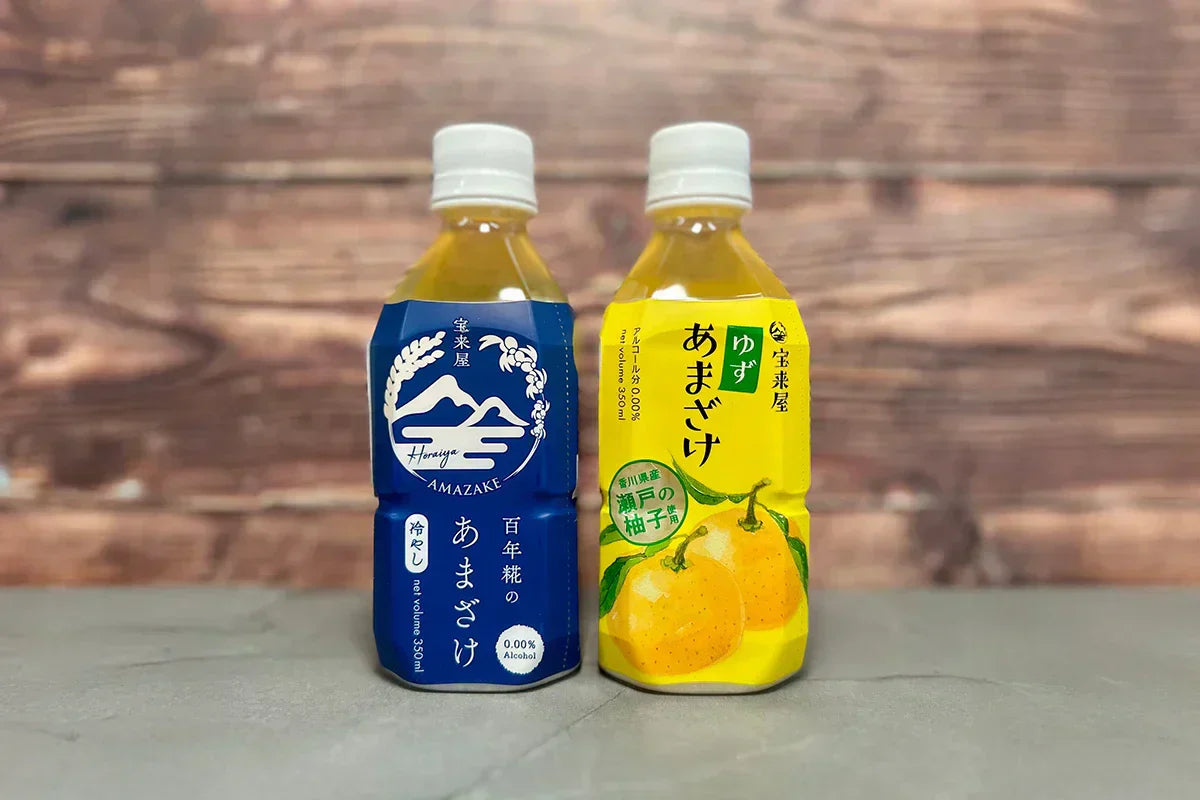
Amazake, also spelled ‘amasake,’ is a traditional Japanese fermented sweet rice drink with over a thousand years of history. This naturally sweet, creamy beverage is cherished for its rich flavour, versatility, and incredible health benefits. Whether enjoyed chilled in the summer to relieve heat fatigue or sipped warm in the winter as a comforting treat, amazake has long been a beloved staple in Japanese culture. It’s even a popular hangover cure, earning the nickname ‘drinkable IV’ due to its replenishing nutrients.
As fermented foods like kombucha and kefir continue to boom in popularity for their gut-health benefits, amazake emerges as both a superfood and a delicious addition to a balanced diet. But what exactly is amazake? What does it taste like, and how can you use it in your daily meals? Let’s explore everything you need to know about this fascinating drink.

Amazake literally translates to ‘sweet sake,’ though it comes in both alcoholic and non-alcoholic versions. This drink is made by fermenting cooked rice (either white or brown) with a unique fungus called Aspergillus oryzae—the same koji mould used to make miso, soy sauce, and natto. The natural fermentation process breaks down the rice’s starches into simple sugars, giving amazake its characteristic sweetness without any added sugar.
The ingredients are traditionally combined and left to ferment for around eight to ten hours, resulting in a naturally thick and creamy drink with a subtle grainy texture. Because amazake is made from rice, it is naturally gluten-free and rich in probiotics, making it excellent for gut health.
One of the most remarkable things about amazake is its versatility. While it is commonly consumed as a drink, it can also be used as a natural sweetener in various dishes. From smoothies and desserts to salad dressings and even pickles, amazake’s mild sweetness and umami depth make it a fantastic ingredient for both sweet and savoury recipes.
One of my fondest childhood memories is visiting Shinto shrines during the New Year season, wrapped up in layers against the cold, with the air filled with the scent of roasted chestnuts and sizzling street food. My mum would always get me a small cup of warm amazake, gently sweet and soothing. The steam would rise in little wisps, and the warmth would spread through my hands as I sipped it slowly. Those first sips of amazake in winter brings back those memories of the excitement at that time, and the quiet magic of traditional Japan.

The first sip of amazake is a revelation, it is naturally sweet with a mild, comforting warmth. The texture is smooth yet slightly thick, similar to a light porridge, due to the fine rice particles suspended in the liquid. It has a creamy, rice-pudding-like consistency and a delicate nutty, almost malty undertone.
Depending on the type of rice used, the flavour can vary slightly. Amazake made from white rice is typically smoother and sweeter, while brown rice amazake has a deeper, more complex, and slightly earthy flavour. Some versions are further enhanced with a pinch of salt or a touch of ginger, which complements the sweetness beautifully.
Whenever I had a cold as a child, someone in my family would make me a bowl of warm amazake, sometimes with a hint of freshly grated ginger. It was always said that it was good for the stomach and that it would make me strong. I didn’t realise back then that amazake is packed with nutrients and probiotics, but I did know that it made me feel better almost instantly. It was comforting, like a gentle hug in a cup.

Amazake is more than just a delicious drink—it’s a nutritional powerhouse packed with vitamins, minerals, and probiotics:
- Rich in B Vitamins: Amazake contains thiamin, niacin, and other B vitamins that support metabolism and energy production.
- Loaded with Minerals: It’s an excellent source of selenium, manganese, magnesium, and phosphorus, essential for overall health.
- Good for Digestion: Being a fermented product, amazake is full of beneficial enzymes and gut-friendly bacteria that aid digestion.
- Promotes Healthy Skin and Hair: The natural amino acids and nutrients found in amazake are known for their anti-aging and beauty-enhancing properties.
- Low Glycaemic Index: Amazake is slowly digested, leading to a gradual release of energy and stable blood sugar levels. This makes it a great alternative to refined sugars.
Amazake is often recommended as a nourishing drink for those recovering from illness, as it is easy on the stomach while providing essential nutrients. It has long been a staple in traditional Japanese diets, appreciated for its gentle yet effective health benefits.

In Japan, amazake is traditionally enjoyed as a warm drink, often diluted with hot water and sometimes flavoured with ginger for a fragrant, soothing beverage. But its use extends far beyond just being a drink, for example:
- Smoothies: Blend amazake with fruits, nuts, and plant-based milk for a naturally sweet, probiotic-rich smoothie.
- Baking: Use amazake as a sugar substitute in pancakes, muffins, and cakes.
- French Toast Batter: Amazake can be used as a dairy-free, naturally sweet batter for French toast.
- Salad Dressings & Marinades: Its subtle sweetness pairs well with vinegar and soy sauce, making it an excellent base for dressings and marinades.
- Rice & Grain Bowls: Instead of traditional sugar-seasoned sushi rice, try using amazake for a healthier, naturally sweet flavour.
I remember the first time I tried to make amazake at home. I had seen my mother carefully and patiently looking after the mixture, making sure the temperature was just right, but when it was my turn, I just wanted to get on with it and rushed. I kept peeking into the rice cooker, worried it wasn’t fermenting properly. After six hours, I finally took a spoonful, and to my delight, it had turned beautifully sweet. It wasn’t just about making a drink, it felt like being responsible for a small but precious piece of Japanese culinary tradition.
Learn to make your own amazake, a very traditional Japanese fermented sweet rice drink packed with health benefits, following this recipe.
This article was originally published on Japanese Food. Simply. by chef and teacher Yuki Gomi.
Yuki blends traditional and modern techniques to make Japanese cooking approachable and delicious.
Buy one of our DIY Sushi Kits and receive a voucher for 50% OFF one of Yuki’s great courses in Japanese cooking.


